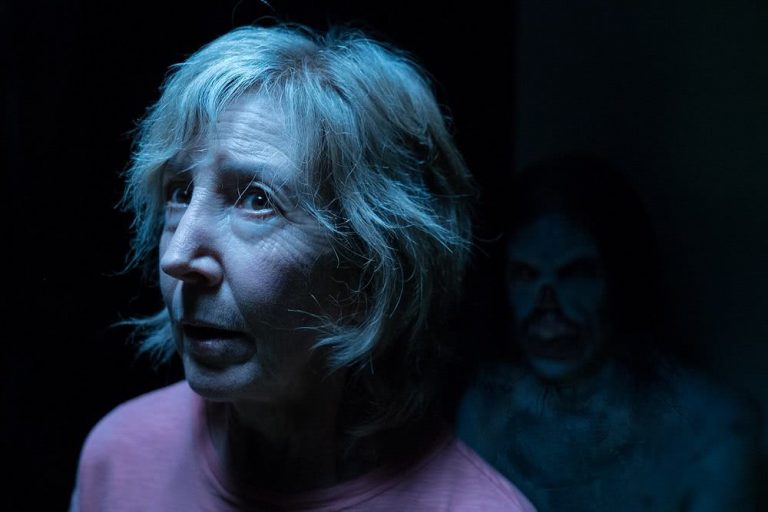They’ve never quite gotten the acclaim that they deserve, the Insidious films. The first has a wry, postmodern sense of humour all of its own – upon discovering their house is haunted, the film’s heroic protagonists break with horror conventions and immediately get the fuck out of there. And even the occasionally paltry third instalment, the un-inventively titled Insidious Chapter Three, gleamed with a thrilling meanness that revealed the authorial hand of actor/writer/director Leigh Whannell, also the father of the Saw series.
So, even though Insidious: The Last Key is more than occasionally cringeworthy, it almost goes without saying that it has some life to it too – a spark, however faint, of the original black magic that made the first film the international breakout success that it was some eight years ago.
The Last Key is about as subtle as dental surgery conducted with a power drill.
The plot of The Last Key is mumbo jumbo – it’ll make me feel infinitely dumber for recalling it, and you infinitely dumber for reading it, so let’s keep details scant. All you need to know is that our hero, once again, is the paranormally gifted Elise Rainier (Lin Shaye), a psychic extraordinaire who finds herself forced to unravel a mystery that involves her dead mother, her childhood home, and a key-fingered antagonist. Elise might have been (spoilers) unceremoniously offed at the end of the original Insidious, but she has been placed front and centre here: the film’s arc sees her coming to terms with her childhood trauma, her great supernatural gift, and the way those two things overlap.
Of course, to call what happens in the film an “arc” is quite generous – The Last Key is about as subtle as dental surgery conducted with a power drill. For almost the entire length of its running time, it repeatedly suggests that it might have something to say about the way the trauma of abuse can echo throughout time, but before it’s even done putting those thoughts in order, it loses all interest and sacrifices everything for a ridiculous final showdown that belongs in another film entirely.
That’s not even to mention The Last Key’s visual language, which is stunted at best. Not content with merely suggesting that Elise is trapped in cycles of abuse started by her spirit-sceptical father, director Adam Robitel has to show her literally trapped in a CGI prison, while repeated attempts to wring emotional worth out of a lock/key motif become eye-wateringly dumb (the film, believe it or not, is honest-to-god set in New Mexico’s Five Keys.)
Yet underneath all that cheese lies something genuinely, if haphazardly, thrilling. The Last Key’s frights might be of the lowest order variety – quiet, quiet, BANG! jumpscares rule the day – but they are pulled off with real aplomb. One bravura setpiece in particular, set in the tunnels underneath Elise’s old home, is a masterclass in misdirection, and Robitel slowly goes through the bag of tricks he used equally effectively in his debut, The Taking Of Deborah Logan.
And for all the ways The Last Key follows the rules of the Insidious franchise – it has the comedic sidekicks, the weird nods to spirituality, the lazy resolution – it breaks a lot of them too. Particularly surprising is a blurring of real world and supernatural scares that Robitel somehow has the gumption to pull off twice, the second time working even better than the first.
The Last Key isn’t going to change your life. But then again, it doesn’t really want to. Its targets are visceral, and deliberately small – to get sweat forming on the back of your neck; to get the hairs on your arms to struggle up to attention. And though it might occasionally flounder, for the most part, it’s a sick, giddy thrill – as dumb as a monster truck rally, and just as thrilling.
Insidious: The Last Key is in Australian cinemas now. For more film reviews, read our thoughts on Nocturama here.


































